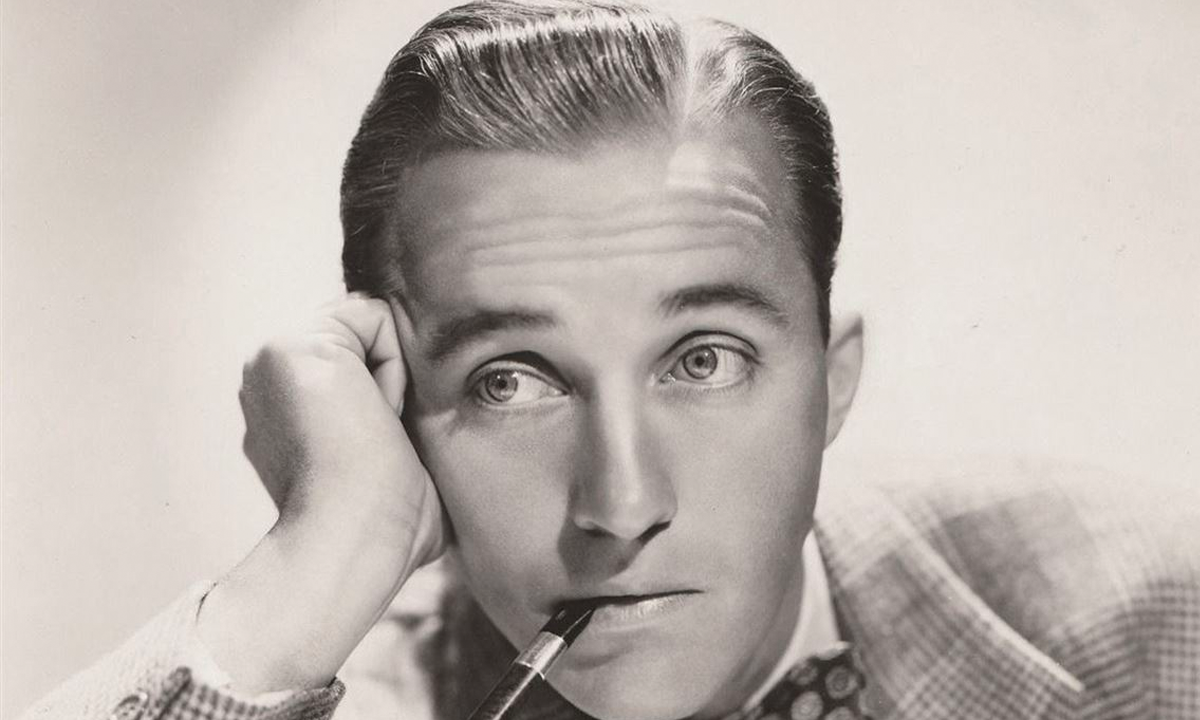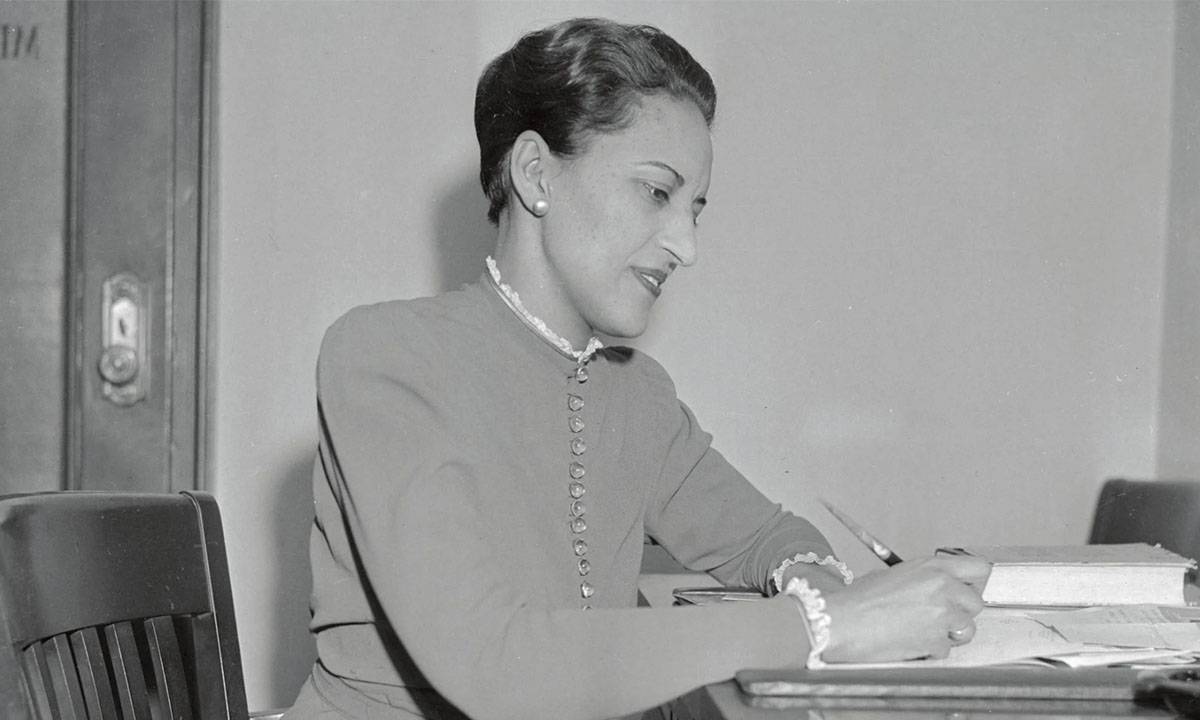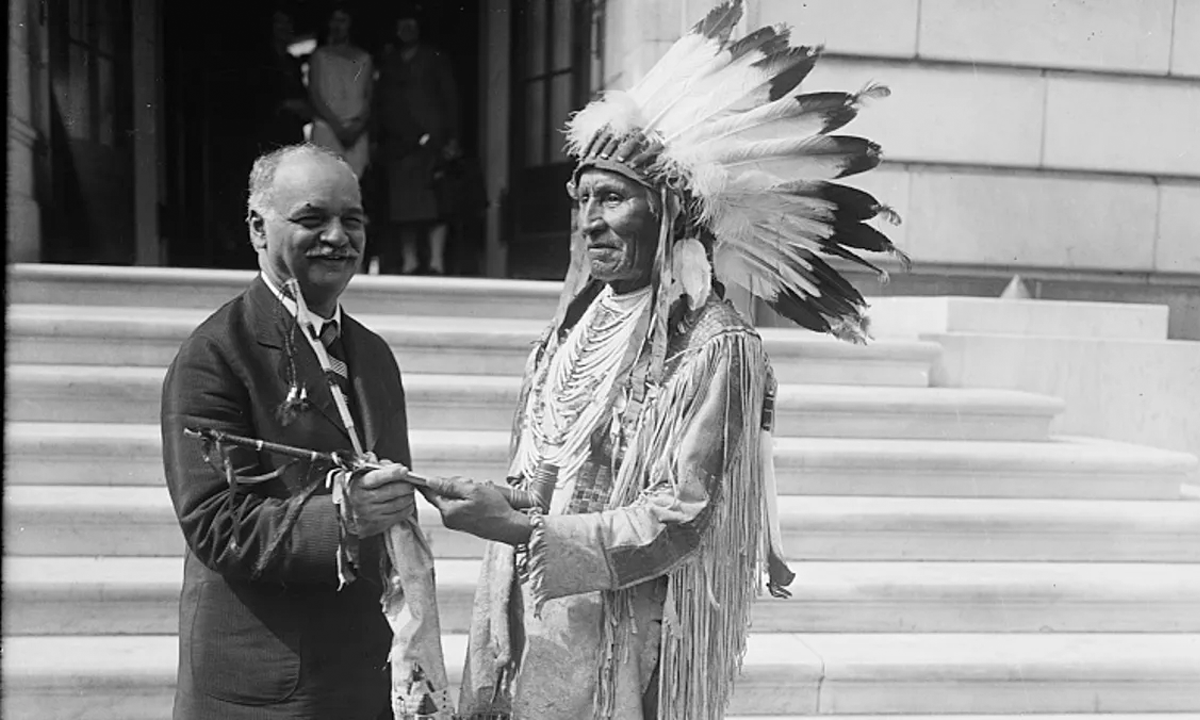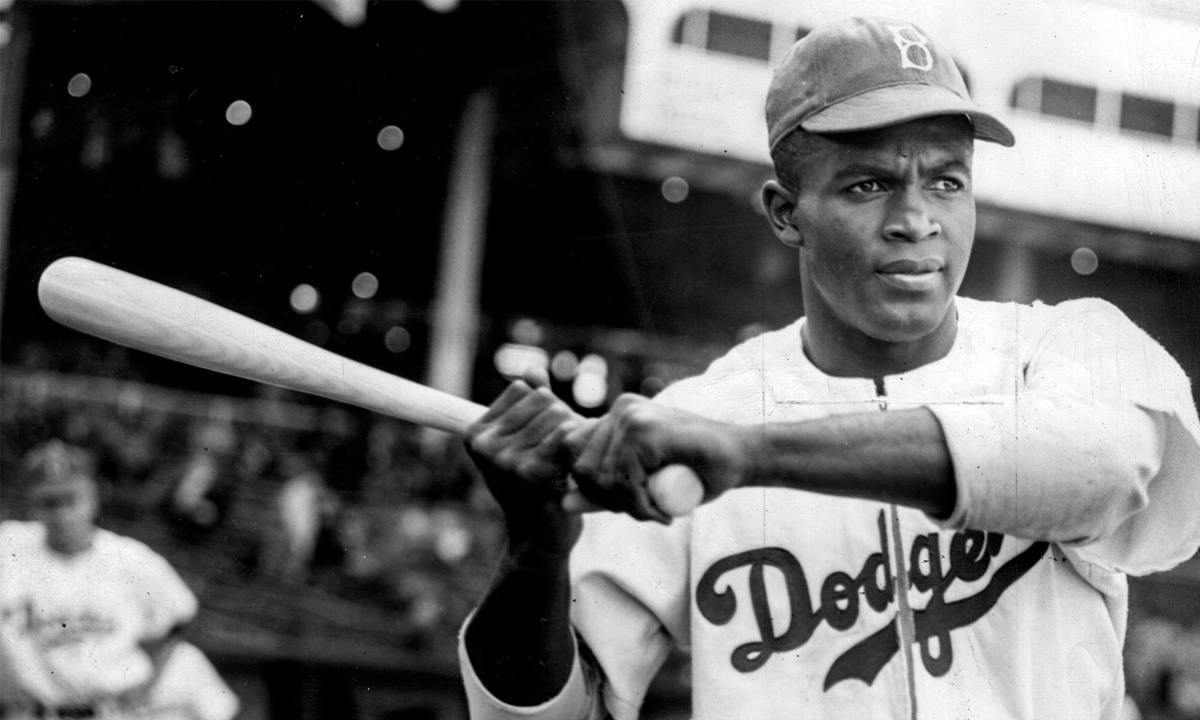Harry Lillis Crosby Jr. was born in 1903 in Tacoma, Washington, the fourth son in a large family of seven children. His family soon moved to Spokane, Washington where he grew up. He studied law at Gonzaga University although he never graduated. When he was seven years old, a neighbor boy nicknamed him “Bingo from Bingville” after a humorous weekly cartoon in the local newspaper. Eventually the last vowel fell off but the name stuck with him for the rest of his life.
In 1923 after Bing had left Gonzaga University, Bing joined a band made up of high school boys called the Musicaladers. The band played at high school dances, club dances and on the local radio station. The group disbanded after two years but Bing and fellow band member Al Rinker found work at the local Clemmer Theater. Bing sang as part of a trio while Al Rinker played piano from the pit as the entertainment between films.
After several months, Bing and Al Rinker decided to seek their fortunes in California. Al Rinker’s sister, Mildred Bailey had made it big as a singer. Once in California, Mildred Bailey introduced them to her show business contacts. The Fanchon and Marco Time Agency signed the two of them for thirteen weeks to play in the revue “The Syncopation Idea” making $75 a week. Although they had minor parts, it was here that they started to develop as entertainers. They went on to play in other revues further developing their entertainment skills. Within a year of their arrival in California, they were brought on board by Paul Whiteman and his jazz band to become a part of one of the biggest names in the entertainment world at the time. The duo later formed the trio “Rhythm Boys” with Harry Barris and continued to perform with the jazz band.
In 1930 “The Rhythm Boys” released a few singles and appeared together in one of Bing’s first films “The King of Jazz”. It was soon after this that Bing Crosby launched his solo radio career. His radio show was a huge success attracting 50 million listeners at its peak and was heard on the air for nearly 30 years. The same year Bing recorded “I Found a Milion-Dollar Baby” and “Just One More Chance” which were the year’s biggest hits. In 1930 Bing Crosby also married Dixie Lee, an actress and nightclub singer. They were married until her death in 1952 and had four sons. In 1957 he married actress Kathyrn Grant with whom he had three more children.
Bing Crosby soon became the foremost singer in America. 10 of the top 50 songs in 1931 featured Bing. He launched his film career starring in a series of musical film shorts which lead him to sign with Paramount in 1932 starring in his first feature film “The Big Broadcast”. He went on to star as the lead in 55 films and appeared in a total of 79 movies. In 1934 he signed a record deal with record company Decca. He soon established a long time pattern of making three movies a year.
Bing’s impact on the entertainment industry increased as his radio show, personal appearances, hit records and his successful movie “The Big Broadcast” increased his fame worldwide. He is credited with saving the recording industry during the depression as he agreed to support Decca Records’ founder Jack Kapp’s pioneering idea to change the payout from a flat fee to a royalty fee for records sold and lowered the price of a single from $1 to 35 cents. Many recording artists then signed with Decca Records following Bing’s lead. Bing Crosby’s popularity and talent kept the recording industry alive throughout the depression years.
In 1936, Bing Crosby exercised a contractual option signing with Columbia Pictures to make a movie outside of Paramount. He dreamed of making the screen adaptation of a story in the book “The Peacock Feather” with his friend Louis Armstrong. The movie “Pennies in Heaven” was a huge hit. Armstrong’s musical scenes as well as some comical dialogue enhanced his musical career. Bing insisted on Armstrong having lead billing along side his white co-stars, a first for a wide release feature film. Armstrong went on to appear as himself in many Bing Crosby films and they remained lifelong friends.
During WWII Bing Crosby made numerous personal appearances before US troops in Europe. He also learned to read German from written scripts and broadcast propaganda messages to German troops. He was considered a key element in maintaining troop morale during the war ahead of FDR and Bob Hope.
Bing sang the biggest hit of his career Irving Berlin’s “White Christmas” on his radio broadcast on Christmas morning in 1941. He then recorded it for his movie “Holiday Inn” the following year. This song hit #1 on the charts and remained there for 11 weeks. It has been rereleased by Decca Records hitting the charts again 16 times. This song has become the all time best selling single ever in history with sales of over 100 million worldwide.
Bing Crosby’s movie career was no less spectacular. His on screen talent led to three Academy Award nominations and one Academy Award for Best Actor for his role in “Going My Way” in 1944. He became involved in television production with “Fireside Theater”. Bing Crosby Productions also produced favorite television series such as “Ben Casey” and the popular “Hogan’s Heroes”.
Crosby had a significant impact on the modern use of tape recording. Up until 1945 radio shows had been broadcast live. Some shows were reproduced live for the West Coast. Bing Crosby had a run in with NBC over his use of tape to pre-record his radio show. The musicians’ union sided with NBC looking to protect musicians’ jobs in the studio. Pre-recording his show allowed him to record a month’s worth of radio shows at his convenience. German audio engineers had developed broadcast quality magnetic audio tape that eventually became the industry standard. Bing Crosby eventually walked away from his radio show and the network for seven months as NBC refused to air pre-recorded shows. This created a legal battle with his sponsor Kraft. Eventually he returned to finish the last 13 weeks of the 1945 season. He moved to ABC who had already adopted the pre-recorded format for Orson Welles “The Shadow”. He pushed the industry to perfect sound and magnetic tape technology as well as the quality of microphones. He saw this as a means to bring better quality and control mistakes and content of his shows through editing. He also saw this as an opportunity to promote on the radio his newest investment in world’s first frozen orange juice branded “Minute Maid” which gave him the possibility of making more money and not be taxed at the 77% tax rate. He was also instrumental in the future development and use of video tape technology.
Bing Crosby was also a horse racing fan. He was a founding member of the Del Mar Thoroughbred Club and a member of the board of directors. There he became fast friends with fellow horse enthusiast Lindsay Howard. Together they formed the Binglin Stables partnership to breed and race horses. The partnership was dissolved in 1953 when Crosby was forced to sell off his assets to settle hefty inheritance tax debts owed on his deceased wife’s estate.
Bing Crosby passed away after a massive heart attack in 1977 on his way back to the club house at the Moraleja Golf Course near Madrid, Spain after a round of golf. Bing Crosby is held to be the most successful multimedia entertainer of the 20th century. He reached the height of popularity and fame in radio, television, film and as a recording star. Bing Crosby was a Republican!




